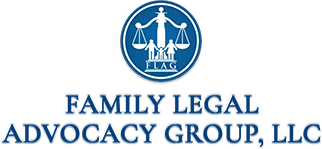FLAG is pleased to announce that we are providing parenting coordination services to assist parents prior to, during, and after litigation. Sarah Novak Nesbitt has completed the necessary training and is a court certified Parent Coordinator.
What is parenting coordination?
Parenting coordination (PC) is a process by which parents and/or caregivers collaborate with a neutral third party to improve communication, develop or improve co-parenting skills, and reach joint decisions in the best interest of their children. Study after study has revealed that conflict between parents/caregivers is a strong predictor for negative outcomes in children. Decreasing parental conflict, improving communication with your co-parent and minimizing your child’s involvement in discord with your co-parent are the best gifts you can give to your child.
Who can serve as a parenting coordinator?
Md. Rule 9-205.2 details the professional and training requirements for parenting coordinators. A parenting coordinator must: (1) be at least 21 years old and hold a bachelor’s degree from an accredited college or university; (2) hold a post-graduate degree in psychology, social work, counseling, negotiation, conflict management, or a related subject area, or from an accredited medical or law school; (3) have at least three years of related professional experience undertaken after receiving the post-graduate degree; and (4) hold a current license if required in the individual’s area of practice.
Additionally, to qualify as a parenting coordinator, an individual must: (1) complete at least 20 hours of training in a family mediation training program meeting the requirements of Md. Rule 17-106 (b); (2) complete at least 40 hours of accredited specialty training in topics related to parenting coordination, including conflict coaching, developmental stages of children, dynamics of high-conflict families, family violence dynamics, parenting skills, problem-solving techniques, and the stages and effects of divorce; and (3) in each calendar year, complete a minimum of four hours of continuing education approved by the Administrative Office of the Courts in one or more of the topics listed in subsection (c)(2) of the Rule (i.e., conflict coaching, developmental stages of children, dynamics of high-conflict families, family violence dynamics, etc.) and in recent developments in family law.
How is parenting coordination different from mediation?
Although both mediation and parenting coordination involve parents working with a neutral third party, the processes are quite different. In mediation, the mediator’s primary goal is facilitating an agreement between parties. A parenting coordinator works with parents and/or caregivers to reach agreements as well, but parenting coordinators are permitted to weigh in on the terms of the agreement, and even serve as a tie-breaker for parents, as permitted under the Maryland Rules and the terms of the PC agreement and/or court order governing the process. Parenting coordinators can also work with parents on a more consistent basis to assist parents in developing skills and strategies to communicate productively going forward. Parties may meet with a parenting coordinator as needed or on a more regular basis. The frequency and number of meetings is case specific.
PC also differs from mediation in that a parenting coordinator may meet with relevant third parties, as necessary. For example, a parenting coordinator may speak with a child’s best interest attorney, a treating medical provider, a grandparent or step-parent, etc. Parents may be asked to sign releases to allow the PC to contact necessary third parties.
Finally, unlike mediation, parenting coordination is not confidential. Mediators cannot be subpoenaed to testify in court, nor can a mediator’s notes be subpoenaed for a parent to offer into evidence. In contrast, a parenting coordinator may be subpoenaed to testify in court and his/her notes may be subpoenaed as well. After the conclusion of each PC session, we will draft a memorandum summarizing what was discussed in the session, as well as any agreements reached by the parties. The memorandum is distributed to the parents as well as any attorneys who may be involved in the matter. Knowing this provides some parents with reassurance as they may feel a level of accountability that mediation cannot provide.
How can a parenting coordinator assist my family, and what decisions can a parenting coordinator make?
Md. Rule 9-205.2(g) states that a parenting coordinator may:
- if there is no operative custody and visitation order, work with the parties to develop an agreed plan for custody and visitation;
- if there is an operative custody and visitation order, assist the parties in amicably resolving disputes about the interpretation of and compliance with the order and in making any joint recommendations to the court for any changes to the order;
- educate the parties about making and implementing decisions that are in the best interest of the child;
- assist the parties in developing guidelines for appropriate communication between them;
- suggest resources to assist the parties;
- assist the parties in modifying patterns of behavior and in developing parenting strategies to manage and reduce opportunities for conflict in order to reduce the impact of any conflict upon their child;
- in response to a subpoena issued at the request of a party or an attorney for a child of the parties, or upon action of the court pursuant to Rule 2-514 or 5-614, produce documents and testify in the action as a fact witness;
- if concerned that a party or child is in imminent physical or emotional danger, communicate with the court or court personnel to request an immediate hearing; and
- decide post-judgment disputes by making minor, temporary modifications to child access provisions ordered by the court if (A) the judgment or post-judgment order of the court authorizes such decision making, and (B) the parties have agreed in writing or on the record that the post-judgment parenting coordinator may do so.
Are there any restrictions on the work that a parenting coordinator may perform?
Yes. Md. Rule 9-205.2(h) states that a parenting coordinator may not:
- Communicate orally or in writing with the court or any court personnel regarding the substance of the action, except as permitted by Md. Rule 9-205.2(g)(7) and (8);
- testify in the action as an expert witness; or
- except for decision making by a post-judgment parenting coordinator authorized pursuant to subsection (g)(9) of the Rule, make parenting decisions on behalf of the parties.
How much does parenting coordination cost?
Ms. Nesbitt bills parents at an hourly rate. Parents are billed for the time spent in session, as well as the PC’s communications with third parties, e-mails, telephone calls, and parenting coordination memoranda.
Do you require a retainer?
No. Ms. Nesbitt understands that family law matters can be costly, particularly when parents are involved in litigation. We want parenting coordination to be accessible to all parents/caregivers who would benefit from the service. As such, instead of requiring a retainer, we ask parents to provide a credit card to keep on file. Each parent’s credit card is charged five days after the PC memorandum is released, or at such other time as may be discussed by the parents and the PC.
How are PC fees divided between parents?
Parents typically divide parenting coordination fees 50/50. If there is no agreement or court order stating otherwise, each parent will be charged for one-half of all services rendered. If an agreement or court order provides for a different allocation of costs, we will divide the PC fees according to the agreement or court order.
For how long must we attend parenting coordination?
If you are participating in PC on a voluntary basis, you, your co-parent and the PC will determine together for how long you will participate in the PC process. If you are attending PC pursuant to a court order, the court order dictates the length of time in which parents must participate in the process.
In what counties will you provide parenting coordination services?
We primarily work with families in Howard, Carroll, Baltimore, and Anne Arundel Counties, as well as Baltimore City. However, with the widespread use of virtual meeting platforms, we can offer parenting coordination services to anyone in Maryland.
How do I schedule a parenting coordination session?
Please call our office at (410) 884-0400. We will be happy to discuss the process further and coordinate dates and times on which you and your co-parent can meet with Ms. Nesbitt to begin the parenting coordination process.





